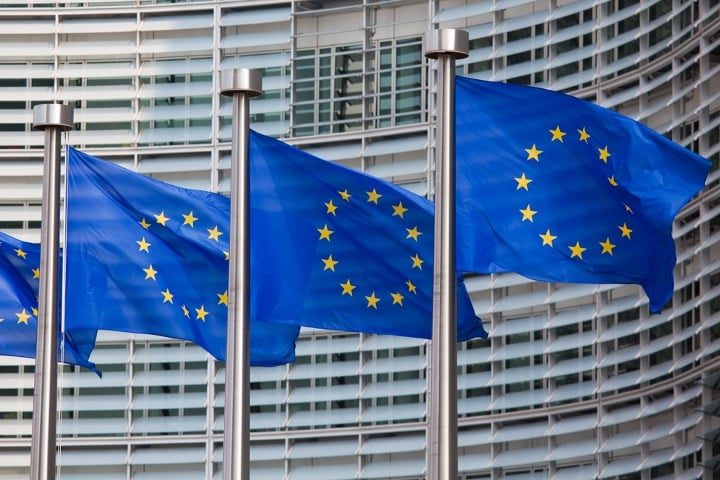
In an article published by Hungarian news outlet Magyar Nemzet on June 28, Hungary’s Minister of Justice Judit Varga declared that she was pulling out of the Hungarian government to concentrate on the impending European Union election campaign, following her nomination by Hungary’s Fidesz party to lead the candidate list for next year.
“But this task, like my ministerial duties, requires a whole person, and I have already informed the Prime Minister of my intention to resign as of July 31st,” Varga stated. “I think the right thing to do is to hand over the leadership of the Justice portfolio to someone who can concentrate 100% on it.”
Owing to her credentials, Varga was regarded by many as a suitable candidate from Budapest to spearhead the EU election campaign. Prior to her role as justice minister in Prime Minister Viktor Orbán’s Cabinet in 2019, Varga worked as a political advisor in the European Parliament to MEPs such as János Áder, Hungary’s former president, for nine years.
She assumed the role of state secretary for European affairs in 2018, taking the helm of the rule-of-law dispute between Brussels and Budapest.
This April saw Varga proving herself to be a veteran at the negotiating table, concluding eight months of rigorous discussions and reaching a technical agreement between Budapest and Brussels on Hungarian judicial reforms required for her country to obtain €27 billion in EU cohesion and pandemic recovery funds.
“This morning I had a constructive discussion [with] Justice Commissioner [Didier Reynders]. Technical negotiations on the judicial commitments have been concluded,” Varga wrote on her Twitter page declaring the news. She then added that it was up to the European Commission to arrive at a formal conclusion, stating that “we wait for the decision of the College of Commissioners.”
During a panel discussion organized by MCC Brussels in April, Varga expounded on the contents of the aforementioned negotiations, pointing out that the discussions were hard and long, but the European Commission kept including further conditions, making negotiations even more complicated.
Nevertheless, Budapest was “able to translate these requests into technicalities and integrate them into the [reform] package,” Varga posited. She indicated that the first phase of negotiations involved what the reforms should be about in principle, while the second stage was figuring out the technical details.
In turn, a leftist coalition of the European Parliament’s parties signed a joint letter on April 23 slamming Orbán and urging the European Commission not to release the billions in cohesion and pandemic recovery funds frozen on the pretext of Hungary’s alleged rule-of-law breaches last year.
“We believe [the latest legislative developments in Hungary] will further contribute to undermining the values enshrined in the Article 2 TEU [Treaty on European Union], and the deterioration of the rule of law, fundamental rights and democracy,” the letter read.
Fortunately for Varga, European Commissioner Reynders tweeted about the meeting with Varga on his page, noting that the “technical discussions between [Hungary and the EU] have progressed well,” and “further internal steps will follow for the Commission to analyze the progress made.”
According to Varga, the commissioner told her he “was fine with the text now,” and was “putting it up for political decision.”
The minister also recalled that the Hungarian government was initially hesitant to join the Covid-19 recovery plan because it entailed obtaining a joint loan at the EU level, increasing the public debt of the entire bloc. Varga claimed that Budapest wanted to prevent pushing the costs of the economic recovery to the next generation, but decided to join nonetheless to aid other EU states whose economies were more adversely impacted by the coronavirus lockdowns.
That being said, when the money was ready to be distributed to the member states, Hungary found itself unable to obtain any of it, based on reasons that Budapest claims to be political. The European Commission decided to invoke the “rule of law” mechanism against Budapest, withholding billions of euros in recovery (and cohesion) funds until adequate reforms, especially in Hungary’s legal system, were in place and in accordance with the demands of the commission.
“The mother did not get the money but the children will have to pay it back,” Varga commented, alluding to Hungary’s clash with the EU. Although some of the proposed reforms were regarded as unnecessary and even foreign to the Hungarian judicial system, Varga said, they have all been enforced. “We made sacrifices, we made all the changes they requested,” she said, “and now we’re on a good path” to unlocking the frozen funds.
In the recent Magyar Nemzet interview, Varga indicated that “The stakes are very high for the 2024 EP elections: we need a conservative shift in the European institutions, and I want to play an active role in that.”
She then elaborated:
We see a growing conservative movement rise across Europe. We need to build on this. I’ve always said that it doesn’t matter who belongs to which party family, the point is to overturn the disproportionate liberal dominance in the EU. We need a return to a sense of sanity that puts the interests of Europeans first, whether it is the question of migration, gender, or even of war and peace.
Varga additionally opined that the present political atmosphere in Hungary and Europe strongly hints that a shift toward the right could be possible by 2024. After all, the traditionally center-right parties of western Europe are inching toward the left and failing to address European people’s grievances. Also, voters have been let down by progressive and green parties, which have not attained tangible benefits for voters in recent years, in addition to their controversial legacies of identity politics.
“If we look at the success of the Spanish Vox or the Fratelli d’Italia, we can see that the stigmas attached to sovereigntist parties are in vain: voters choose according to their own perception of reality. More and more citizens want to return to the core values that these parties represent,” she said.



